Netizens in China debate: Are Chinese entrepreneurs all bad guys?
A comment by New Oriental's founder Michael Yu Minhong has sparked online debate on the ideals of private entrepreneurs in China. However, amid the commotion, Yu actually has sound advice for the business community in navigating through tough times.
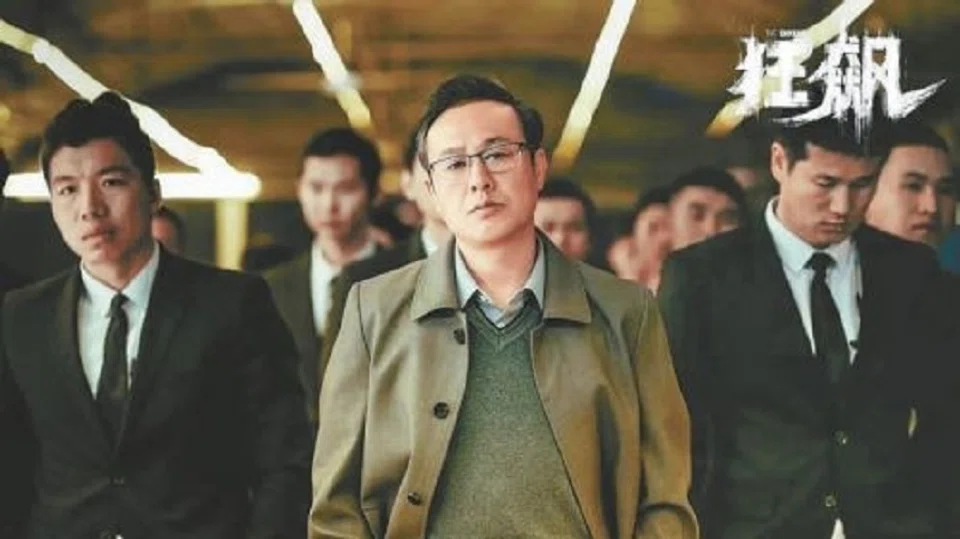
"I don't really like The Knockout (《狂飙》) TV series because none of the private entrepreneurs portrayed are good people, which cannot be true," said the founder and chair of New Oriental Education & Technology Group Michael Yu Minhong.
These words immediately sent him to the top of Weibo's trending topics on 2 March.
In the viral clip, in addition to expressing his dissatisfaction on the above, Yu also expressed hope that "when another film like this is made about private entrepreneurs and government relations in the future, at least half of the private entrepreneurs should be good people".
Jointly produced by CCTV and iQiyi, The Knockout presents a story about China's crackdown on criminal gangs. It is one of China's top-rated television series in terms of ratings and public praise, and has a large fan base on Chinese social media platforms. Hence, netizens swarmed Weibo to rebut Yu's dissatisfaction with the drama.
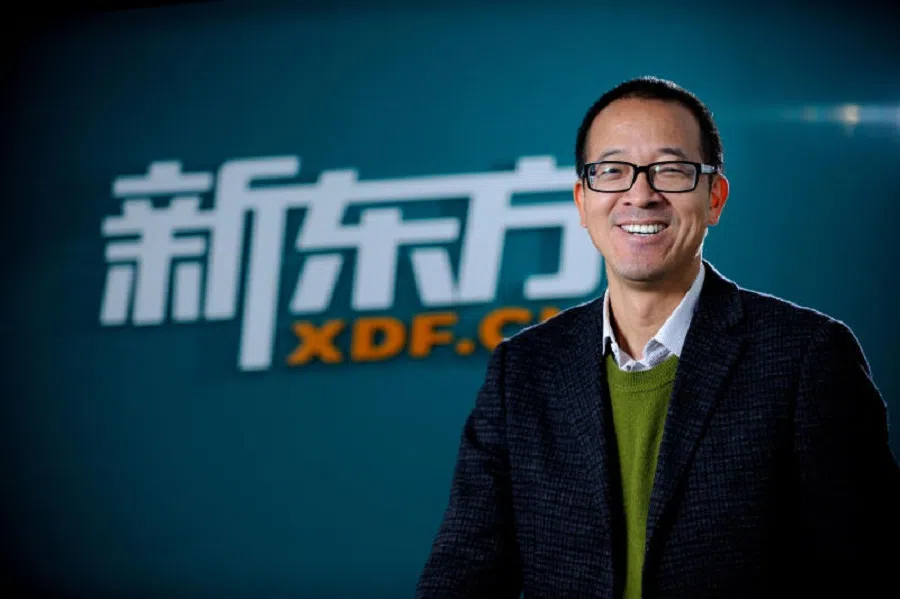
Some netizens believe that Yu disliked the drama because it touched a sore spot, while others thought that Yu was being oversensitive. Other commenters even cited a famous quote by China's first premier Zhou Enlai: "If the people love to see or hear it, who are you to say you don't?"
Entrepreneurs can be good people too
Commenters countering Yu said that the characters in The Knockout are meant to serve the plot, which is about the fight against criminal gangs. As most of the entrepreneurs in the show have dealings with gang leader Gao Qiqiang, it is hard to portray them in a favourable light. Besides, there are only a few private entrepreneurs in the show, so it's nothing out of the blue if none of them are good guys, and Yu is overreacting.
Such a rebuttal is indeed justified and seems to show that netizens have a better understanding than Yu of what makes for good television. But Yu's "review" of the drama is not entirely made from an audience's perspective. And this becomes clearer if you see the circumstances in which he said those words.
Yu reminded entrepreneurs to have accountability and not focus solely on earning money or on speculation and profiteering. Otherwise, they would end up like Gao Qiqiang in The Knockout and "suffer endless consequences".
Yu's remark came during a speech at the Deshengmen Lecture Hall hosted by the All-China Federation of Industry and Commerce on 26 February, where he expounded on the confidence and opportunities of private sector entrepreneurs. The Knockout was merely an analogy he used to grab attention.
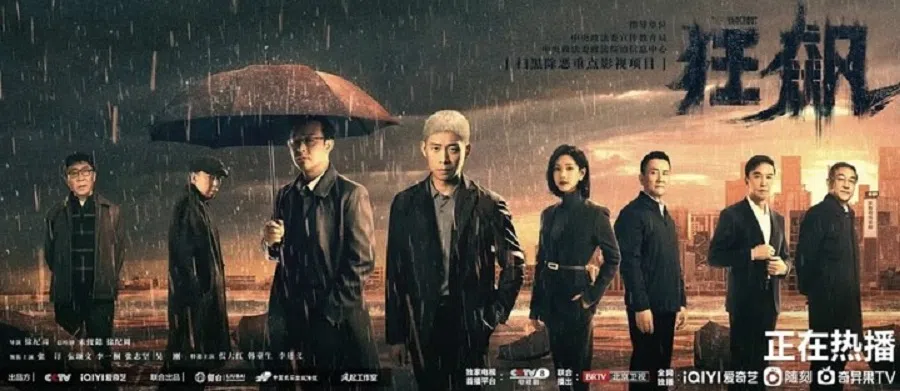
Based on the full text of his speech circulating online, after sharing his experience and insights on seizing opportunities, Yu reminded entrepreneurs to have accountability and not focus solely on earning money or on speculation and profiteering. Otherwise, they would end up like Gao Qiqiang in The Knockout and "suffer endless consequences".
He then teasingly expressed his dislike of the show's portrayal of private entrepreneurs, and rhetorically questioned the audience who were largely business people: "This clearly doesn't reflect reality, does it?"
He concluded his speech by expressing hopes that more positive character portrayals of private entrepreneurs would be included in such dramas that touch on "the relationship between entrepreneurs and the government" in the future.
Hence, what Yu was trying to say was that he disapproved of the portrayal of entrepreneurs against the government in film and television, and was implicitly "seeking justice" for private entrepreneurs, rather than simply having a problem with The Knockout.
... the real-life "Gao Qiqiangs" are even worse than the one portrayed in the drama. - Netizens
Netizens disagree
However, even netizens who understood Yu found it hard to accept his remarks because most ordinary workers feel that good entrepreneurs are few and far between.

A popular post on the forum website Zhihu pointed out that while Yu is not wrong for wanting to see the portrayal of "good" entrepreneurs in drama serials, the real-life "Gao Qiqiangs" are even worse than the one portrayed in the drama. Commenters who were more extreme wrote that there is hardly any Chinese entrepreneur who made their first pot of gold "through honest means"; "good people can't become entrepreneurs"; and that "Yu Minhong could have become the next Gao Qiqiang if he made his fortune outside of China".
Another popular post on Zhihu said that even if one took "compliance with the law" as the minimum standard, few entrepreneurs would voluntarily abide by the Labour Law, let alone become fair bosses who treat their employees well.
Commenters said, "Be realistic! The Knockout is right, none of the private entrepreneurs are good people."
Changing environment for entrepreneurs
Some commenters empathised with Yu, saying that he is one of the few entrepreneurs with a conscience, given that he appropriately compensated New Oriental employees who were laid off. Other commenters suggested that Yu should instead watch American Dreams in China (《中国合伙人》) if he wanted to see a positive portrayal of entrepreneurs on screen.
... the netizens, who are mostly salaried employees, have drawn a clear class distinction between themselves and Yu, and have different standards from the entrepreneurs in assessing the entrepreneurs themselves.
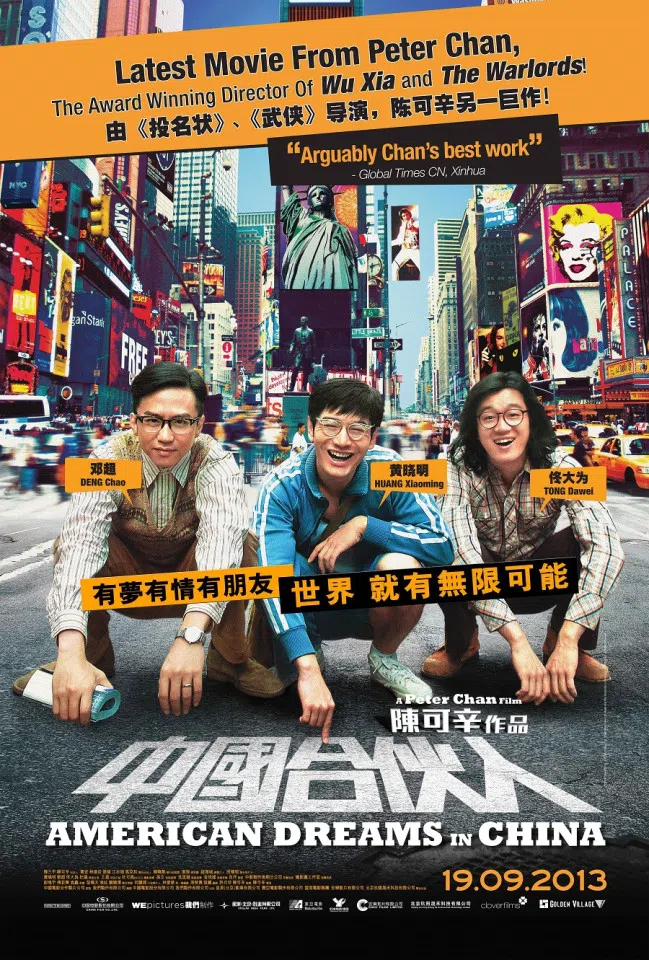
American Dreams in China is based on the story of New Oriental, which was jointly founded by Yu Minhong, Xu Xiaoping and Wang Qiang, and pays tribute to Chinese entrepreneurs who found success between the 1980s and the early 2000s. The film earned a relatively good average rating of 7.6/10 from more than 600,000 ratings on Douban, and even won the Golden Rooster Award for Best Picture the year it was released.
However, ten years after its release, things have totally changed. And this applies to New Oriental, the other Chinese entrepreneurs that the film paid tribute to, such as Lenovo founder Liu Chuanzhi and Alibaba founder Jack Ma, or even the English name of the film "American Dreams in China".
Based on these comments, the netizens, who are mostly salaried employees, have drawn a clear class distinction between themselves and Yu, and have different standards from the entrepreneurs in assessing the entrepreneurs themselves.
For instance, going by the number of jobs created or the value of personal wealth, Jack Ma would indeed be considered a good entrepreneur. But the millions of "involuting" workers who struggle and clock overtime just to make a living would deem him as an evil capitalist for his endorsement of the "996" work culture (working from 9am to 9pm, six days a week).
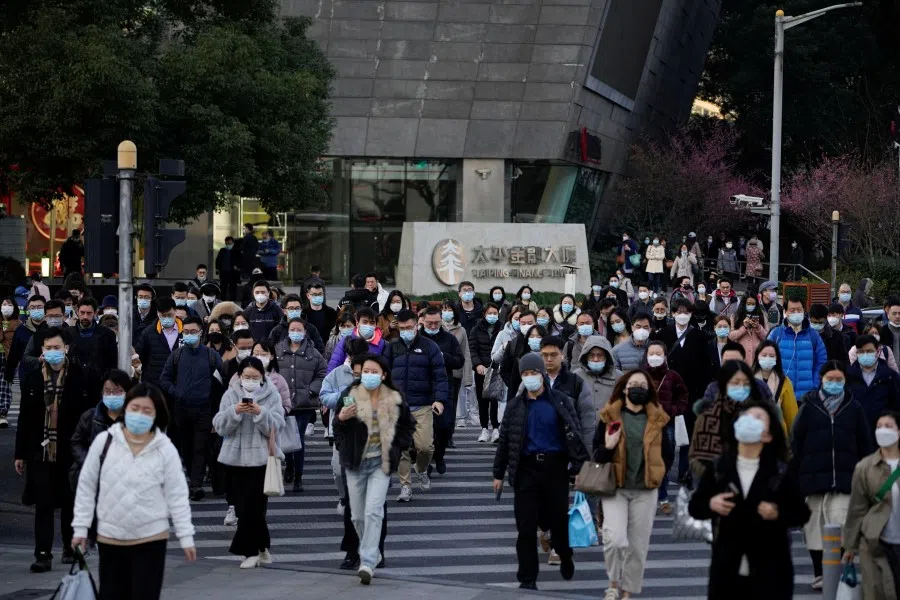
The idea that "the working classes do not empathise with capitalists" means that most people would disagree with Yu's comments. But just as many netizens say that The Knockout is not for entrepreneurs, Yu's comments "defending" entrepreneurs are not meant for these netizens.
Yu's unrivalled confidence
After being hit by Covid-19, since late last year China has focused on growing the economy and supporting private enterprises. Many well-known Chinese entrepreneurs have written in state media or given interviews discussing and encouraging "confidence" among private sector entrepreneurs.
Yu's speech during the Deshengmen Lecture Hall session is no exception. It was essentially a positive "guided essay" based on his own experience, closely aligned with the session's theme of "Boosting confidence in growth and seizing opportunities for change".
In 1993, Yu set up New Oriental Education, which focused on English exams preparation for university students going overseas, and later expanded to become a tutoring centre for all subjects. Yu became the first person to benefit from China's overseas education and tutoring sector. But while New Oriental had dominated the market amid involution in the education sector, the "double reduction" policy (reducing the burdens of homework and after-school tutoring) for K12 or basic education implemented in 2021 practically flattened the sector.
That year, New Oriental lost 90% of its market value and 80% of its earnings, and had to lay off 60,000 staff. But even in the face of such a lethal blow, Yu did not give up. He forked out nearly 20 billion RMB to refund school fees and compensate the staff who were let go, as well as donated 250,000 sets of desks and chairs to rural areas and mountainous areas, thus cementing a favourable impression among workers and the public.
He felt that any talk of boosting confidence was moot as he never lost confidence in the first place.
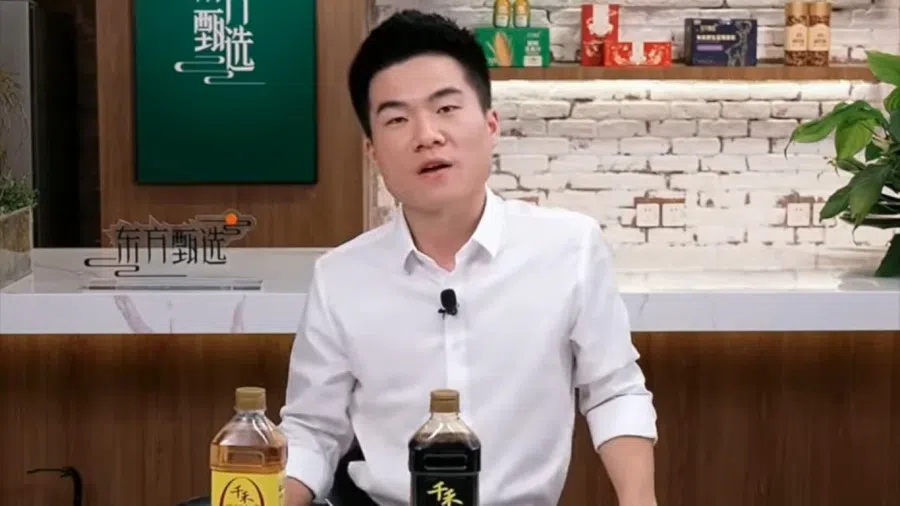
In December 2021, New Oriental launched Oriental Selection (东方甄选), a livestreaming sales platform to help farmers sell their fresh produce, with Yu also promoting the platform on Douyin. In June last year, former New Oriental high school English teacher Dong Yuhui rapidly went viral with his bilingual livestreams, helping to establish the Oriental Selection branding.
According to the financial report for the first half of the 2023 fiscal year released in January, New Oriental's online earnings after transitioning to Oriental Selections has grown 262.69% year-on-year to 2.08 billion RMB, with profits up by 207.59% to 585 million RMB, recording its first profits since going online and getting listed.
Through Oriental Selection, New Oriental seized an important opportunity in transitioning away from the education sector, sparking hope for many entrepreneurs and those in the business sector. But in his speech, Yu described the change as a "natural process". He felt that any talk of boosting confidence was moot as he never lost confidence in the first place. He stressed that one must maintain confidence in the face of adversity, as difficulties and opportunities always come hand in hand.
Yu also advised that entrepreneurs have to look to the future and do what is in line with national development, what improves peoples' lives, and what one can live with in terms of values and one's bottom line, to avoid becoming a "Gao Qiqiang".
Evidently, Yu is an idealist who can withstand sudden blows, find opportunities in adversity, and even offer worldly advice to boost other peoples' confidence.
He also reminded entrepreneurs not to blame their companies' current difficulties on China's poor economy or the three years of Covid-19 - some challenges were present even when the economy was flourishing. He added that they should actively seek opportunities to transition at all times, and not just during tough times.
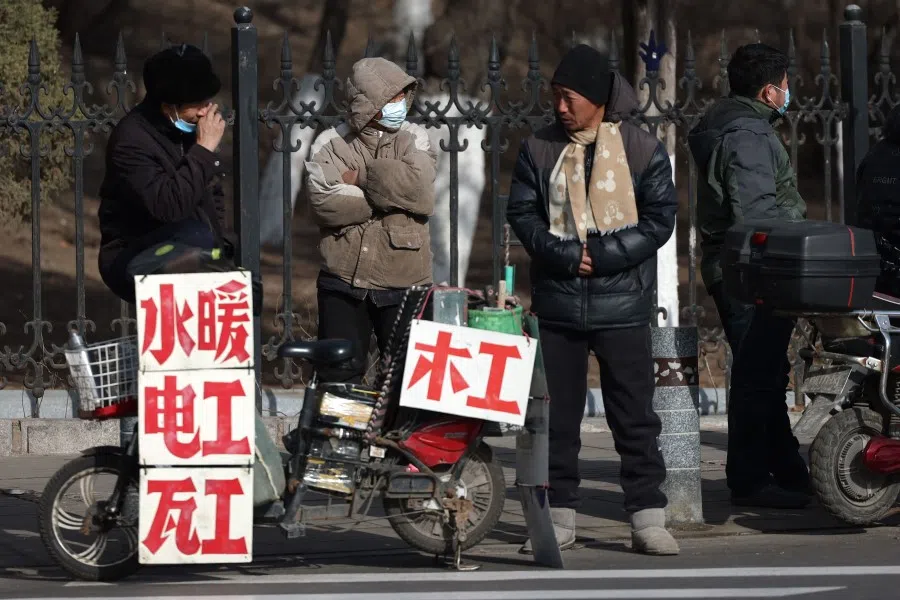
Evidently, Yu is an idealist who can withstand sudden blows, find opportunities in adversity, and even offer worldly advice to boost other peoples' confidence. But even he would be anxious in the face of reality and feel the need to defend the on-screen image of entrepreneurs, while keeping calm amid the success of Oriental Selection, and continuing to seek new opportunities.
Can the majority of ordinary private sector bosses, especially those who have been hit by the economic impact of Covid-19, and owners of small- and medium-sized businesses concerned with international relations, have the same confidence as Yu and hold to their original intentions?
This article was first published in Lianhe Zaobao as "俞敏洪为什么不喜欢《狂飙》?".
Related: China's livestreaming e-commerce: The million dollar business fueling product innovation | Hit by the pandemic: Foreign companies in China struggle with regulations and policies | When doing business in China, beware of patriotic netizens | Innovation and 'new retail' driving the Chinese economy | China's 'godfather of overseas study' now selling farm produce, regrets listing




![[Big read] When the Arctic opens, what happens to Singapore?](https://cassette.sphdigital.com.sg/image/thinkchina/da65edebca34645c711c55e83e9877109b3c53847ebb1305573974651df1d13a)
